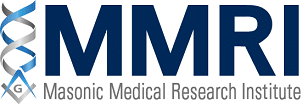Areas of Investigation
My research aims to integrate translational molecular imaging techniques and novel diagnostic and therapeutic agents to study and treat venous thromboembolism and cardiovascular disease. Over the last few years, we have provided novel in vivo techniques to examine and visualize inflammation and protease activity. Using intravital confocal of deep vein thrombosis, we have shown the ability to capture high-resolution spatial maps of venous thrombosis inflammation and structure. Utilizing the same techniques, we have demonstrated that statin therapy of established venous thrombi decreases both thrombus burden and vein wall scarring. These two important factors lead to post-thrombotic syndrome in humans. We are now exploring other anti-inflammatory and fibrinolysis therapies and extending these findings to PET/CT for better treatment and stratification of patients with venous thrombi. More recent work aims to understand the biology of pulmonary embolism and pulmonary hypertension and the inflammatory response that drives pulmonary fibrosis.
Lab Focus
- Venous thromboembolism - Deep vein thrombosis and Pulmonary Embolism
- Nanomedicine or nanoagents
- Molecular imaging
- Atherosclerosis
- Inflammation
- Thrombosis

Chase Kessinger, Ph.D.
- Assistant Professor of Biomedical Research and Translational Medicine
Histology/Imaging/Surgery Core Manager, MMRI
Email – , Phone – 315-624-7488
Dr. Kessinger graduated from Texas A&M University in 2005 with a B.S. in Microbiology and continued to graduate school at the University of Texas Southwestern Medical School at Dallas. There he studied cancer biology and nanomedicine. His work focused on the synthesis, validation, and application of multimodality, target nanoparticles for the early detection of lung cancer in the laboratory of Jinming Gao, Ph.D. This project provided a solid foundation for synthesizing and validating nanoparticles in vitro to in vivo while also realizing the limitations inherent in these nanoplatforms. By incorporating MRI and optical imaging agents in the final nanoparticle platform, he also gained a foundation in clinical and preclinical imaging principles and applications. Upon completing his Ph. D. degree in Cancer Biology in 2010,Dr. Kessinger joined Dr. Farouc A. Jaffer's lab at the Cardiovascular Research Center at Massachusetts General Hospital (MGH) as a Ruth L. Kirschstein. During his fellowship, Dr. Kessinger’s focused on utilizing molecular imaging techniques to understand inflammation in venous thrombosis, atherosclerosis, and arteriovenous fistula. In 2015, Dr. Kessinger was promoted to Instructor at MGH/Harvard Medical School. He has since focused his work in venous thromboembolism, specifically pulmonary embolism, and systematically investigating the role of inflammation, thrombus age on thrombus biology, and resolution mechanisms. In 2018, Dr. Kessinger joined the Masonic Medical Research Institute as an Instructor in Dr. Jason C. McCarthy’s lab. He continues to integrate molecular imaging modalities and novel agents to aim in addressing biological hypotheses in cardiovascular disease and, more specifically, venous thromboembolism, fibrosis, and atherosclerosis. Dr. Kessinger is also the manager of the histology, imaging, and surgery cores at MMRI and loves playing badminton and golf.
Research Assistant
- Riley Cott
- Steven Negron
Click here to view my publications.
